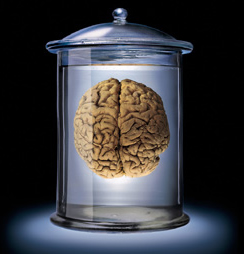Googling “how to reduce the need for affection” doesn’t turn up all that much, and if you ask your friends, they’re just gonna laugh at you. Until weeks later, after they’ve been ditched by whomever it was for them that month, and they come to you, tail between legs, asking “Hey…did you ever find out how to reduce the need for affection?” This has happened to me multiple times!
In researching reducing the need for affection, I’ve come across plenty of articles that try to dodge the issue by avoiding the word “affection.” They claim people are seeking “attention” or “prestige” or “approval” or some other medical-sounding reward. But I think the situation is a lot hotter than that, and by hot I mean a warm fuzzy HUG — get your mind out of the gutter.
A lot of the search results you DO get (YGMV*) are content-farm articles on how to spay or neuter your pet (…so that’s what they’re calling it now?) or y so srs/pitiful pieces in the Huffington Post about how to make your man show you more affection (…she really hasn’t figured that out yet?). I lost the very few useful links I came across. But here’s what I’ve discovered:
- Get busy working on an idealistic project(s).
- Get a pet (this is more of a hack: route around humans).
- Get lost. Aloneness becomes a more comfortable habit given time.
And keep in mind this Theodore Sturgeon quote from his novel Godbody, which the character Britt Svenglund ascribes to the character Dan Currier: “any person who cannot be by himself, it’s because when he is by himself he thinks he is not in good company.”
In the last year, I’ve been in a totally unprecedented situation: I’ve had lots of friends! And I’ve conducted a lot of socializing. (Mostly at this excellent coffeehouse & computer repair shop in Fort Worth.) The whole experience startled me. “Wow, so this is what all the people I hated in high school were doing!” It gets so thoroughly, disgustingly addictive. You wake up one day, and your emotions are beseeching the universe to deliver you affection from others. Your long-lasting contributions to humanity? Yeah, screw those. WAIT NO!
You have to consciously pull yourself away if you get addicted. (Twitter, I’m looking at you.)
Now, you might not want to become a recluse. Currently you gotta interact with people to get where you want to go in life, and it turns out social skills are useful for that. Plus, a good social space generates good random. You encounter people who give you knowledge and paying gigs and culture. This happens in cyberspace, too, but it happens differently in meatspace; I’m not sure how to describe the difference, or why both are valuable.

Brain in a Vat Doesn’t Need Your Meatspace (Pic stolen from here).
A pickup artist is going to look at people with alleged affection-deficits and offer to teach them how to acquire more affection. Which, when you think about it, is not unlike a nicer (or at least nicer-sounding) Thrasymachus, who (according to Plato) taught that justice is nothing but “the advantage of the stronger.” (In the fifth century BCE, in ancient Greece, you could buy teachings from sophists such as Thrasymachus. Early-day Tony Robbins.) Pickup artists have a term: One-itis. Urban Dictionary as usual has the best definition:
Often confused with love, this is the feeling that a particular woman is actually special. This is just an illusion; she is the same as the other three or so billion. “Go fuck ten other women” is the most commonly prescribed treatment for this “disease” (hence the “itis”), as it tends to show quite quickly how very alike people are.
But everyone is a special snowflake, dammit (srsly, you are. And aren’t at the same time, too. Paradox WOAH!). Anyway, it is just remarkable, the difference in perspective, when faced with the question: “What do I do about my affection-deficit?” 1) Become more skilled at manipulating people into giving you affection; or 2) Reduce the need for affection. I’ll take option 2.
Not so fast, the psychiatrists are here. They describe “the self-effacing solution” of wanting too much affection, and the resignation solution of (among others) schizotypals wherein you want too little. Oh, good, the psychiatrists left. Continuing on.
Once I was chatting online with someone, importuning the person for attention affection, and found myself rebuffed; instantly my mind generated epic narratives about how they were full of shit and one day, despite my anger and bitterness, I would triumph before all! AT THE EXACT SAME TIME in another chat window someone was importuning me for attention affection, all plaintive, and I was like, geez, this person’s annoying, won’t they go away, like srsly. Humans are up to here in this affection-acquiring attention-economy business. It’s the pits.
So you want the golden mean of affection and social interaction that suits your purposes and not the purposes your addictions or inexperience define for you. (A golden mean is not necessarily in the middle of the continuum, and not necessarily any sort of average.) On the other hand, maybe you’re such an awesome mystic that you flat-out don’t need to interact with others at all. In which case … can we meet?
INTERLUDE. Let’s take a break for a second.
* YGMV: Your Google May Vary, depending of factors such as your IP address. Which is one reason why proxy networks such as Tor are fun: “Today I’m gonna Google from the point of view of someone in the Czech Republic. Podívejte!“
Writing this I found out there’s a now-defunct Swedish goth metal band called Beseech.
Beseech covered ABBA’s “Gimme! Gimme! Gimme! (A Man After Midnight)” which is both awesome and horrible, and most fitting for this post.
Half past twelve / And I’m watching the late show in my flat all alone / How I hate to spend the evening on my own! … [Yeah I can’t take any more of this either.]
END INTERLUDE. Back to srs bizns.
I should point out that killing a social addiction is most conducive to creative thought. Which is much more useful to the world and (less important) much more happiness-producing than nightlife. What other people think really gets into you and mucks with your invention wellspring. Of course, not so good to invent something without people in it, so at least say hi to somebody today, okay? Or maybe just this week. (Even if just online ;-)
How to Reduce the Need for Affection by Douglas Lucas is licensed under a Creative Commons Attribution-NonCommercial-ShareAlike 3.0 Unported License. Based on a work at www.douglaslucas.com. Seeking permissions beyond the scope of this license? Email me: dal@riseup.net.





 Twitter:
Twitter:
13 comments ↓
Excerpts from a 2003 paper in the Journal for the Theory of Social Behaviour titled “Solitude: An Exploration of the Benefits of Being Alone”:
* Resonant with Winnicott’s position (1958), Koch also contends that we avoid loneliness by experiencing solitude against the background of our social relations. That is, highlighting the essentially social character of positive solitude, loneliness can be kept at bay as long as we are aware in some way that we have meaningful connections to other people. If we become so habitually withdrawn into solitude that our relationships become severed or strained, then we must confront anxiety and alienation.
* the primary differentiating factor between positive and negative episodes was whether or not the person wanted to be alone at the time (i.e., whether or not they were actively seeking solitude at the time of the episode). The voluntariness of the episode is perhaps the single most important factor distinguishing between positive and negative experiences of aloneness.
* Solitude is best conceptualized as a state of relative social disengagement, usually characterized by decreased social inhibitions and increased freedom to choose one’s mental and physical activities. Unlike the anonymous disinhibition of a large group of people (e.g., an angry or celebratory mob), solitude reduces the need for impression management without imposing a pattern of behavior to which one feels pressure to conform. Though solitude seems particularly suited to facilitate contemplation, spirituality, creativity, and even intimacy, it can be spent in many different types of activities. In contrast to loneliness, which by definition involves a negative emotional script, solitude is a more open-ended experience.
* At the very least, in order to benefit from solitude, the individual must be able to draw on inner resources to find meaning in a situation in which external supports are lacking. This perhaps explains why many people, when alone, engage in distracting rather than productive activities
* While personality characteristics (e.g., openness to novel emotions) and developmental milestones (e.g., attachment capabilities, identity-related achievements) bolster one’s chances to make use of time spent alone, one’s construal of the solitude experience and one’s “internal conversations” surely make a differ-ence as well. In an environment of decreased social input, one’s inner life (e.g., one’s memories, interests, self-related beliefs) will reach its maximum responsibil-ity for the content of one’s immediate experience. If the solitary person is able to rely upon her or his beliefs to maintain sufficient feelings of control as well as security in her or his connection to society, then she or he can use the freedom of solitude for any of a range of potentially beneficial purposes. However, if the person’s solitude-related beliefs and memories result in anxiety with respect to lack of volition or to social disconnection, then she or he will likely retreat into loneliness or, if available, into the sociality (or pseudo sociality) of mass media or communication technology.
* In his meditation on solitude, Thoreau (1854/1981) wrote that he had three chairs in his little house at Walden Pond: “One for solitude, two for friendship, and three for society” (p. 208). Many researchers and theorists have devoted their energies to developing compelling analyses of the processes involved when the second or third chairs are occupied. But as the present review has demonstrated, much fascinating work remains for researchers and theorists who seek to understand the factors involved when only the first chair is in use.
Jesus Christ, I’m lonely.
As I have serious time constraints, I make a deliberate effort to invest myself in the lives of: (a) my close family and long-time friends (b) persons whom I feel I may be able to assist in some way (c) individuals whose friendships I find nourishing.
Often a relationship ends up flowing into more than one of these categories. One of life’s delightful surprises is suddenly realizing an acquaintance has moved from (b) to (c).
Dear Mr. Lucas,
I thought I was feeling a wee bit negative this evening, then I ran across your blog. Thank you for providing me the opportunity to appreciate what I have.
Sometimes I wish, for you and for me, that your ‘evaluation’ of affection was accurate for the human experience. Though I do not doubt your research, I greatly recognize the fact that as individuals, it us up to us to choose our perspective and experience.
However, I do not agree with your hypothesis, despite all the profound heart break and trials I have been through, I would not change a single moment. Even after times of uncontroleable heartbreak, sobbing, dissapointment, I am elated and grateful for that small touch, that human interaction, that one smile, my husbands touch on my lower back when he knows I am struggling, that hand squeeze when nothing else can be said, or even that stranger who makes your day with a smile after a ton of frustration. How I wish I could give that to you, dear Douglas stranger, through an emoticon, but that can never be replaced. You would be a fucking bazilionaire if you could bottle it, but it is the only thing on this earth that is priceless, genuine love and affection.
I can respect your opinion, but most importantly, I would love to challenge you, it is never easy to love, easy to lose, but it is far worse to alienate yourself from those experiences. My Mother, whom was a very feisty inspiration to my many achievements, is now slowly dying of a complex Alzheimer’s disease. Though she rarely speaks or can walk anymore, it is affection ALONE that she responds.
I find myself having a difficult time not insulting you, though you are a stranger, it angers me that you write so flippantly about the one true value in life…true love and affection, that comes with a cost and a benefit.
I’m a fucking realistic idealist and I understand your ‘position’ but mostly from an anthrahopological perspective the only thing holding me back from being entirely annoyed with you is that your ‘walls’ usually originate from pain, and that I find it incredibly sad for you. I’m certain you have feelings and needs, scientific or not, this is a natural part of the human experience.
I have been blessed enough to have observed many different types of people, war criminals, mafioso, housewives, corporate slaves, Congressmen, Sheikhs, Royalty…etc. amid 33 different countries in my 33 years of age. I greatly hope for your sake you truly don’t believe you should eliminate yourself from the human experience.
Though, I must say, perhaps your cynicism is good luck. Several years ago, when I was ready to give up on love, caring or any energy toward those things, the universe manifested the most beautiful thing in my life. Words cannot describe the level of affection, care, support, unconditional love, crazy awesome sex, challenge on many accords, growth, security, loyalty and abundance…all beyond my imagination. It was something I almost gave up on, prior to that I almost found myself self-destructing in a war torn country, ready to ‘shut down’ to all concepts of love and affection.
I’m glad I came across your blog, it reminds me of just how much amazing abundance and beauty my life has transitioned to…but only because I was open to it. Douglas, I could never be happier, I hope you have the balls to allow yourself the opportunity as well.
Feel free to email me sometime should you want to continue the conversation. I wish you all the best, with huge big fat hugs and kisses. After all, I believe our souls live on forever, it is only this lifetime we can seize the physical experience. XOXO from a Gypsy war torn loving journalist.
What a thoughtful, humorous, pithy, and intelligent article. So well done. Made me swoon.
Gypsy I think you may be projecting a bit from your past. I dont think he is saying no affection but sometimes people get “needy” an unhealthy appetite for affection. Appetites should be controlled not control us. If not we act out inappropriately by seeking to satisfy them through sex or shallow relationships in the bar or party scene or through binging and bugging people on social media. obviously you have a husband and its appropriate to cultivate that affection with him and the more the better. Lucky for you. But some of us dont have that appropriate outlet. It is tempting to be in the words of the great Buckwheat character portrayed by Eddie Murphy on SNL “puckin for nub in all the places”
basically there is a balance and sometimes we are out of balance and therefore have a need to reduce our desire for affection. I am definitely in that place now. Im in a bad marriage with no affection sex or love and the temptations are numerous to fill that void. its better to focus on other areas of my life right now instead of dwelling on the negative so this article is good for me
It is now 2017. I wonder if you still feel the same way, Mr. Lucas, or if you, like Gypsy, have made a good connection. I have nev-er ev-er responded to a blog. I have never been on a chat line. I struggle, guess what, alone. However, pushed beyond my limit, after telling my husband that the only thing left for me is to “reduce my need for afftection”, I stumbled upon your message. Mark’s situation sounds on the surface like mine. My distractions?…I cuddle my wee doggie and ride my horse when weather permits. These activities are intrinsically worthwhile and spiritually uplifting, but a poor second, a pathetic second, to the quietly sublime expression of affection between two people known to each other over a long time period and through many trials. Now, what shall I do today…I guess I shall start by feeding the horses, after my coffee…
So if I just spent more time alone, I wouldn’t need affection? I really don’t like the fact that I like and honestly need attention and affection, because it hurts very much. If someone figured out how to stop their heart from feeling too much pls hit me up. Thanks
The fact that this article exists has been a comfort and a help to me; so too has Gypsy’s response lol. After being divorced, single and bringing up 5 kids for almost the last 8 years I have developed an online social addiction making me extremely vulnerable, and potentially putting myself and my children in serious danger. Thankfully I am now receiving counselling and it is really helping me, but it’s teaching me that there is a healthy desire for affection and attention and there is also an unhealthy craving. I discovered that pain in my heart for someone who eventually rejected me online because he had mental health issues was really pain in my heart related to my 15 year old son who I had to send to live with his Father and who I miss so terribly that i have not been able to even consider it up to now. We are complex we humans, but I am thankful that there really is help out there if we ask, and there are good solutions that really work; I’m amazed how much I was helped even after only 1 counselling session on something called the Freedom course. I also know that Jesus answers the tiniest of my prayers, that He loves me and is helping me through other people who I thank Him for. I hope my comment is helpful to someone out there and thankyou to all the people who have contributed here. x
Responding to both the article author and to Gypsy.
The most powerful sentence in the article is where it says something to the effect of “I was lonely and my choices were either 1) get better at manipulating people into giving me the affection that I want or 2) reduce my need for affection. I choose the second option.”
Brilliant. I also choose the second option. I don’t discount the first, I am just not going to concentrate on that.
Gypsy – I did not read it as the author saying we must “numb” ourselves to human interaction, or cease to see affection as a value. But rather for those of us (like me) that are in so much pain from the lack of romantic affection that it harms our lives (anger, depression, exhaustion, suffering).
So how do I reduce my need for affection? That is the million dollar question. I like some of the suggestions given in both the article and the comments. I like Doug’s comments about the difference between loneliness and solitude. I know people that are really good at solitude. I think I will practice mindfulness and see how far that can go.
Im so glad to know im not the only one who googles ‘how to stop myself from craving affection’ (not the awful term ‘attention).
Its friends i want. After having spent my entire life in college (age 19 – 29yrs). No only is it difficult for an introvert like me with extremely different likes and interests to find friends, its even harder to bond and keep them..Or be close enough to them. Whatever little pool of childhood or college friends i had, they have changed or drifted away. So if i do get a friend, i want to stop myself from liking them or ‘disturbing’ them with constant chit chats and other little things i do for their affection/friendship.
I have to stop. I really want to be hose people who knows how to be alone and happy. That would be a super power.
I can make friends, I often easily did. However, when ever I do that, I need to play a role in order to pretend to be natural and friendly forcing myself to be someone I’m not. I feel lonely even if in appearances it seems like I’m not the loneliest guy on earth. Still if I was to follow my heart I would spend all days alone because socializing is not a thing that comes naturally to me but this damn need for affection I have keeps on telling me that I’m sad and incomplete when I am alone. So I need love, I need friendship and it comes to me even though I don’t know how to deal with it. I just wish that I could like every other and naturally socialise and enjoy moments with others and be myself, but that’s not the case.
Leave a Comment